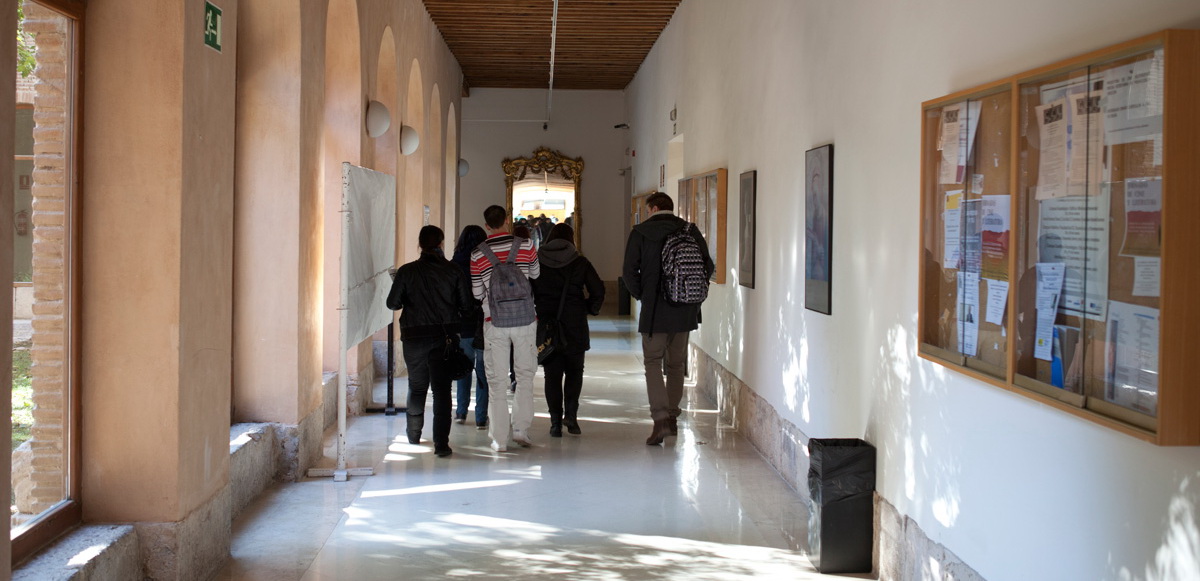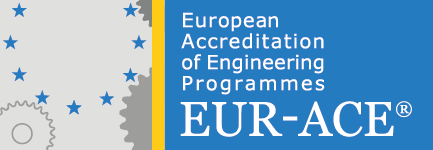
Objectives
This course provides students with the theoretical foundations of telecommunications engineering and specific technological training on the methods and tools of telematics engineering, to acquire the skills and competences necessary for professional employment.
Students should therefore be able to:
- Solve mathematical problems in engineering, applying their knowledge of: Linear algebra, geometry, differential geometry, differential and integral calculus, differential equations and partial derivatives, numerical methods, numerical algorithms, statistics and optimisation.
- Apply the foundations of programming, suitable operating systems, databases and computer programs to engineering.
- Understand and manage the fundamentals of mechanics, thermal dynamics, electromagnetic fields and waves and their applications to engineering problem solving.
- Understand and master the basic concepts of linear systems and their related functions transformations, electric circuit theory, electronic and photonic circuits, the physical principles of semi-conductors and logical families, electronic and photonic devices, material technology and their applications for engineering problem solving.
- Apply their knowledge of the concept of business and its institutional and legal framework, and business organisation and management.
These studies lead to access to the Master's Degree in Telecommunications Engineering, which qualifies its holders to work professionally as Telecommunications Engineers.
Competences
Structure and credits
| TYPE OF SUBJECT | ECTS |
|---|---|
| Basic Training (B) | 66 |
| Obligatory (Ob) | 108 |
| Optional (Opt) | 54 |
| Final Project (Ob) | 12 |
| TOTAL CREDITS | 240 |
Student profile
Students on this degree course should be willing to learn about scientific and technological disciplines, and have curiosity, creativity and innovation, as well as logical reasoning and a practical sense. They also require an ability for abstraction, concentration, attention and perception, analysis and synthesis, mechanical and numerical skills and spatial vision.
Professional opportunities and officially regulated professions
Among other areas, holders of this degree work in the following areas:
Communications network operators (internet, television, landline and mobile telephony, etc.) and in companies engaged in the research and development of communication equipment.
Civil service and defence software engineering firms.
Network configuration, installation and operation in private companies and public sector institutions.
Configuration and installation of commercial networks.
Development and exploitation of telematics applications: online working, online teaching and learning, online medicine, smart homes.
Teaching in secondary schools, universities and private centres.
First academic year taught
Curso 2010/11 PRIMERO
Curso 2011/12 PRIMERO Y SEGUNDO
Curso 2012/13 PRIMERO, SEGUNDO Y TERCERO
Curso 2013/14 PRIMERO, SEGUNDO, TERCERO Y CUARTO
Academic Staff
Information leaflet
More information
- Teaching centre: Polytechnic School
- Official State Bulletin publication date: 09/03/2011
- Number of places available: 75
- Type of teaching: CLASSROOM
- Language of instruction: SPANISH, ENGLISH
- First academic year taught: 2010-11
Observaciones
Distinguido con el sello de excelencia EUR-ACE® que concede la agencia ENAEE, tras la evaluación del título con arreglo de una serie de estándares definidos, de acuerdo con los principios de calidad, relevancia, transparencia, reconocimiento y movilidad contemplados en el Espacio Europeo de Educación Superior.
Subjects, timetables and examinations
Study plan /of adaptation to the degree / Recognition of credits
External practicums
Final Project
International Programmes and Exchanges
Movilidad nacional
Registration
Antes de realizar la matrícula es imprescindible leer la información que figura en el apartado de planificación de la enseñanza y toda la información detallada siguiente:
Regístrate para obtener usuario y contraseña
Realizar la automatrícula por internet






